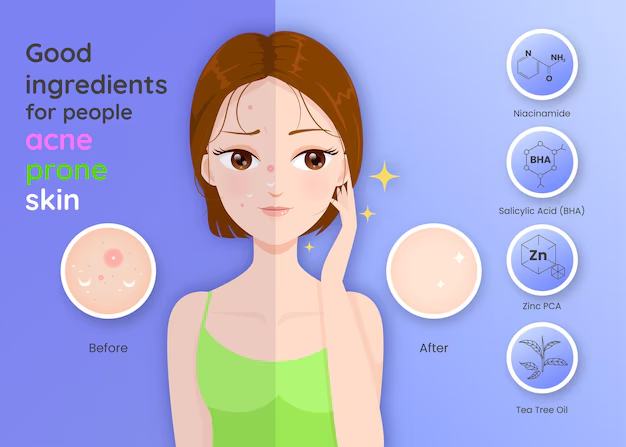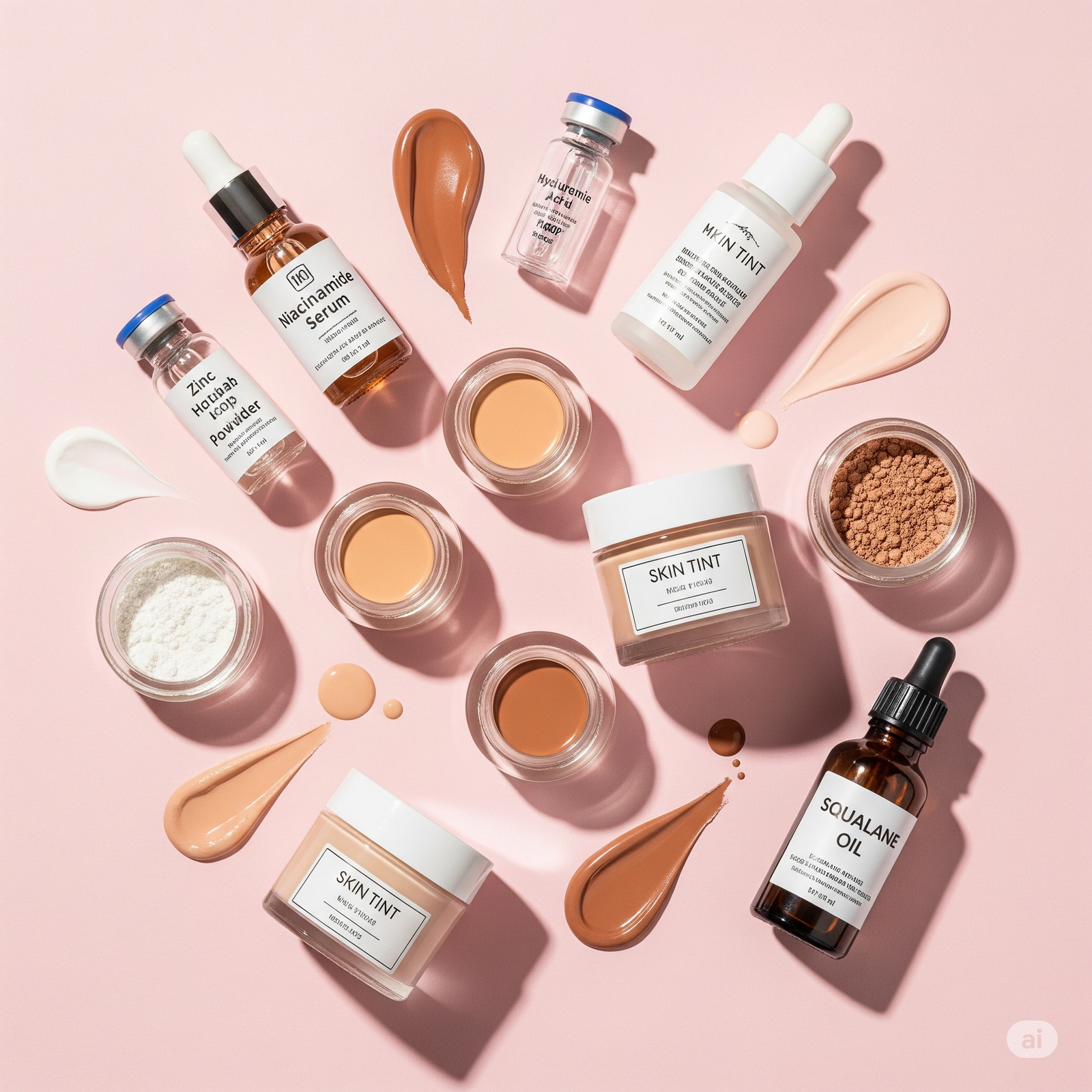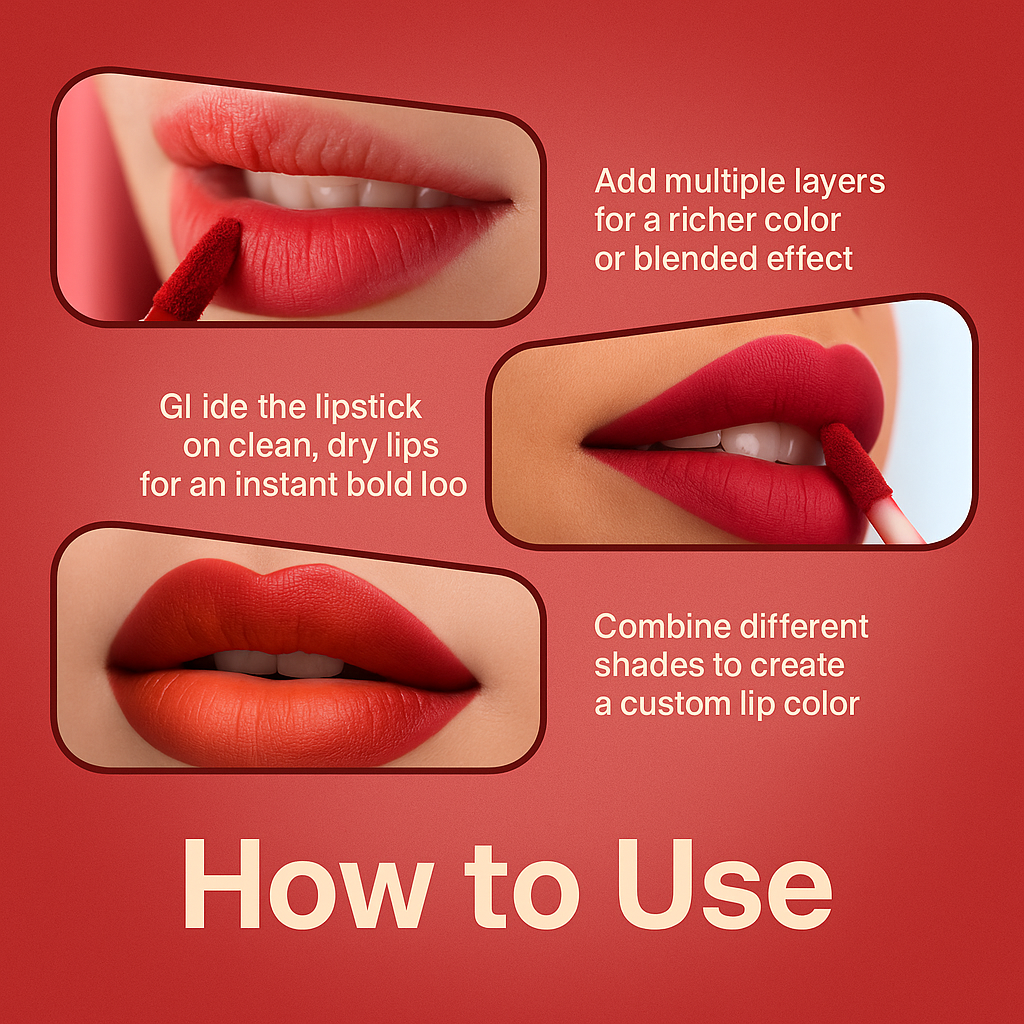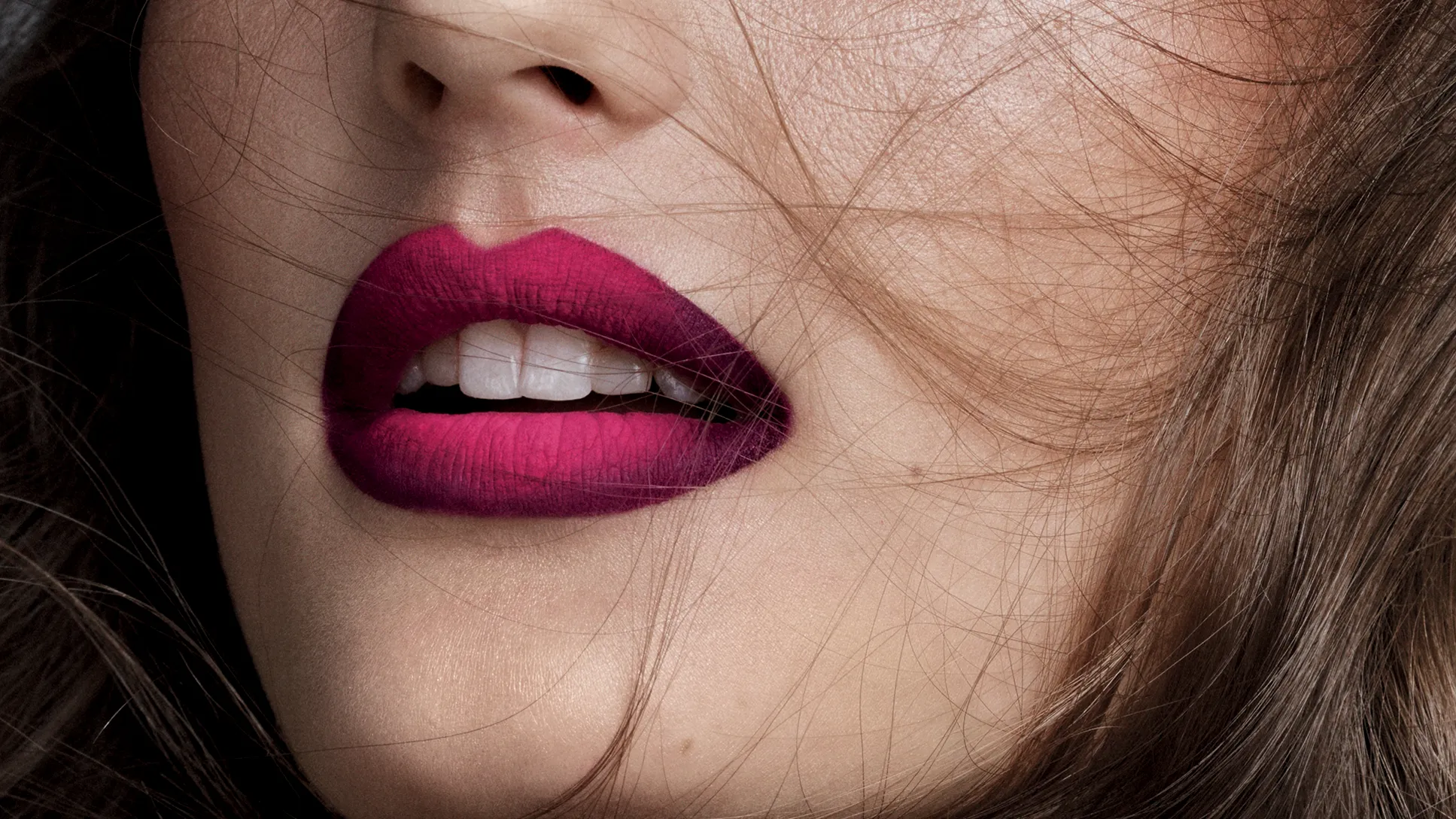ARE SKIN TINTS REALLY BETTER FOR ACNE-PRONE SKIN?
Breaking Out? Why Skin Tints Might Just Be Your Glow-Up in a Tube.
10 Jun'25
By Yugadya Dubey


ARE SKIN TINTS REALLY BETTER FOR ACNE-PRONE SKIN?
We’ve all been there. You’re in front of the mirror, fingers hovering over your makeup drawer, thinking: “Should I go for that acne-friendly foundation today… or risk it with something lighter?” If you’ve got acne-prone or oily skin, chances are you’ve done this dance more times than you’d like to admit.
But 2025 is all about skin-first beauty — enter skin tints, the buzzy, minimalist base product everyone from dermatologists to influencers is raving about. So, here’s the real tea: Are skin tints really better for acne-prone skin? Or are we just falling for another filtered trend?
Skin Tints: The Minimalist’s Base with Maximum Appeal
Skin tints are lightweight, breathable formulas that offer sheer-to-light coverage, often packed with skincare benefits like niacinamide, hyaluronic acid, and even SPF. Unlike traditional foundations that may go on thicker, skin tints feel more like a second skin (not a suffocating mask).
They often come infused with skincare ingredients — think niacinamide, hyaluronic acid, SPF — and offer a radiant, barely-there finish. Perfect for Zoom meetings, errand runs, or “I woke up like this” selfies.
And if your skin’s been acting up? They just might be your new go-to.
For acne-prone skin, that lighter texture means:
- Less pore-clogging
- Less irritation
- Less breakouts post-makeup
It’s not just about coverage — it’s about letting your skin heal while still feeling put together.
The Ingredient Intel: What to Look for

Acne-friendly Ingredients
Not all makeup is the enemy. Here’s where skincare obsession pays off. When you’re picking between a skin tint for oily skin or a traditional base, ingredients matter big time.
Look for these acne-friendly MVPs:
1. Niacinamide
A miracle worker that reduces redness, controls oil, and strengthens the skin barrier.
2. Zinc Oxide (found in tints with SPF)
Calms inflammation while protecting against sun-triggered breakouts.
3. Squalane
Balances oil without clogging.
4. Hyaluronic Acid
Keeps skin plump and moisturised, helping heal acne scars.
5. Salicylic Acid or Willow Bark (found sometimes in Foundation Hybrids)
Gently exfoliates and keeps pores clear.
Avoid:
- Coconut Oil or Lanolin- Comedogenic for many skin types.
- Fragrance-heavy Formulas- Can irritate sensitive or acne-prone skin.
- Alcohol, especially SD (specially denatured) alcohol- Can dry and sensitise skin.
- Thick silicones that aren’t breathable- Can trap oil and debris if not properly cleansed.
Skin Tints vs. Acne-Friendly Foundations
Let’s clear something up — not all foundations are evil for acne-prone skin. In fact, many acne-friendly foundations today are oil-free, non-comedogenic, and even infused with skincare actives.
Let’s break it down in a side-by-side cheat sheet.

Simple Comparison between Skin Tint and Acne Friendly Foundation for Acne-prone Skin
So while acne-friendly foundations do exist (and we love them when it’s red carpet energy), skin tints shine when you want light, buildable coverage that won’t cause your skin to panic.
What Are Dermatologists Saying?
Derms are backing this trend with science.
Dr. Shereene Idriss (aka your favourite Instagram derm) puts it like this:
“If you’re breaking out often, don’t go heavy. Let your skin breathe. Choose lightweight, non-comedogenic tints that offer hydration and blur without suffocating your pores.”
Meanwhile, dermatologist Dr. Sam Ellis supports using tinted SPFs or hybrid skin tints with soothing ingredients during active breakouts — because yes, your makeup can (and should) multitask for your skin health.
Dr. Mona Gohara, a board-certified dermatologist, told Allure:
“Skin tints with SPF and niacinamide are excellent for acne-prone skin. The lighter the formula and more breathable the base, the better for long-term skin health.”
Dr. Hadley King also emphasises non-comedogenic labelling, which means the formula has been tested not to clog pores. But as she says:
“It’s not foolproof. Always check the ingredient list, especially if you’re super sensitive.”
Real User Reviews and Feedback
Reddit communities highlight popular tints like Lancôme tinted serum with niacinamide and hyaluronic acid, Tower 28, Milk Makeup Sunshine Tint, and e.l.f. Halo Glow—all praised for non-comedogenic properties and dewy finishes.
Bonus: Why Skin Tints for Oily Skin = Summer Gold
If your skin gets shinier than a glazed doughnut by noon, you know the horror of full-coverage foundation melting off midday. Enter: skin tints for oily skin — specially formulated with oil-controlling ingredients like silica, niacinamide, and blurring particles.
The best ones give you a soft-focus filter finish without adding weight or shine.
Top Acne-Friendly Skin Tints of 2025
Here’s our approved lineup of skin tints that work with your skin, not against it.
- ILIA Super Serum Skin Tint SPF 40- Packed with skincare, Non-comedogenic, Gives glow without grease
- Fenty Beauty Eaze Drop Blurring Skin Tint- Soft matter finish, Long wear for oily skin types
- Tower 28 SunnyDays SPF 30- Fragrance-free and sensitive skin-safe, National Eczema Association-approved
- Saie Slip Tint Tinted Moisturiser- Clean, dewy finish, Non-irritating and hydrating
- e.l.f. Halo Glow Liquid Filter- Budget-friendly, Oil-free, radiant base perfect for layering
So, Are Skin Tints Actually Better?
The short answer? Yes — for most acne-prone skin types, skin tints are a gentler, safer option for daily wear. They're breathable, often formulated with acne-supportive ingredients, and perfect for the “my skin but better” look that’s still trending hard in 2025.
But don’t cancel your acne-friendly foundation just yet — they still slay when you need fuller coverage for events, photoshoots, or serious glam.
Final Take: Skin-First, Base Second
Makeup isn’t about covering up anymore — it’s about supporting your skin while expressing your style. For acne-prone beauties, skin tints for oily skin offer a breathable base that won’t clog your glow-up.
Choose formulas with purpose, ingredients that speak to skincare, and never underestimate the power of a light base + confidence combo.
Yes, Skin Tints Can Be a BFF for Acne-Prone Skin.
They won’t erase your breakouts. But they can give you breathable coverage, soothing ingredients, and the confidence to step out without fear of causing more chaos on your face.
When shopping, always check:
✔️ “Non-comedogenic” label
✔️ Lightweight, oil-free formulas
✔️ Bonus skincare ingredients
And most importantly, choose what feels good on your skin. Because in the end, the best base is one that lets your skin be seen, safe, and softly glowing.
Your skin isn’t a problem to be fixed. It’s a canvas to be cared for. So treat it kindly.
— By Yugadya Dubey
The 3-Lipstick Hack: Layering for Events, Not Just Texture
From subtle daytime to sultry nights – why stop at one lipstick when you can layer like a pro?

Ombré Lips: Creating Depth Without Overlining
Subtle fades, bold contrasts, how to rock ombré lips without the fuss.
